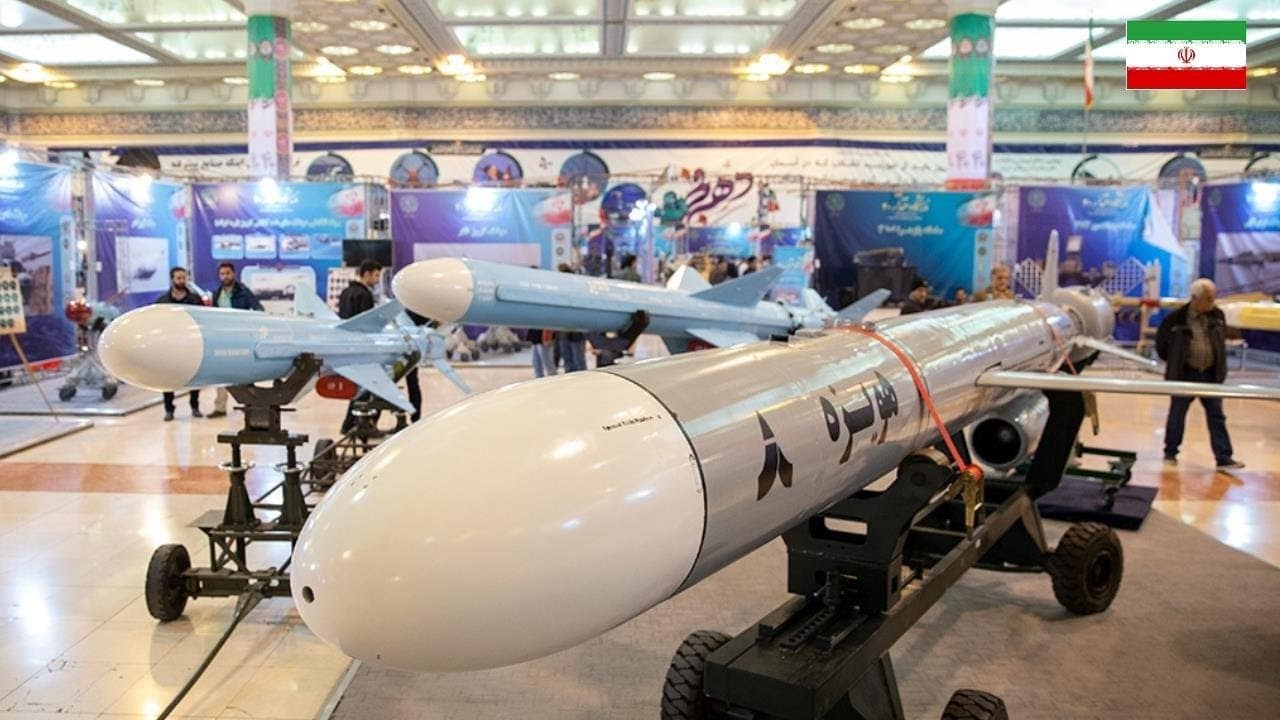Last week, Britain’s Royal Navy reported that a shipment of Iranian weapons had been seized by one of its warships in international waters earlier this year. Rocket engines designed for the Iranian-made 351 cruise missiles and surface-to-air missiles (SAMs) were among the weapons confiscated during a routine maritime security operation.
While the arms were identified by the British Navy, their destination was not disclosed. However, the Iranian-backed Houthi rebels frequently use the seized weapons in attacks targeting Saudi Arabia and the United Arab Emirates (UAE).
Shipments Fuel Yemen’s Rebels in the Civil War
In January 2022, a helicopter from the frigate HMS Montrose detected Iranian-operated speedboats in the waters off the southern tip of Iran. After the Royal Marines boarded, searched, and located the illegal arms on the vessels, they confiscated the weapons.
The UK’s Armed Forces Minister James Heappy said “The UK is committed to upholding international law, from standing up to aggression in Europe to interdicting illegal shipments of weaponry that perpetuates instability in the Middle East,” adding that “The UK will continue to work in support of an enduring peace in Yemen and is committed to international maritime security so that commercial shipping can transit safely without threat of disruption.”
Iran has played a significant role in the devastating civil war that has plagued Yemen for over eight years. In 2014, Houthi insurgents seized control of Yemen’s northern Saada province, catalyzing the conflict that would trigger the world’s most dire humanitarian crisis in the 21st century. In 2015, the Houthis advanced on Yemen’s presidential palace forcing the former government to flee. The conflict escalated following this incident when Saudi Arabia and some of its Sunni Arab neighbors launched an air campaign targeting the rebels. The U.S., France, and the United Kingdom backed the Saudi-led coalition, which strived to restore Yemen’s former government back to power.
As Yemen destabilized from the outbreak of war, Iran’s Revolutionary Guard Corps (IRGC) exploited the emerging power vacuum. For years, Iran has diplomatically supported the Shiite Houthi rebels publicly. However, the group continuously denies funding and providing arms to the group that was designated a terror organization under the Trump administration in 2020.
According to the Wall Street Journal, Iran’s mission at the United Nations claimed it did not interfere in Yemen’s civil war, adding that “Iran has not sold, exported, or transferred any arms, ammunition, or related equipment to Yemen in contravention of Security Council resolutions.”
Despite these claims, evidence linking Tehran to the rebels extends back before the onset of the civil war. In 2013, an Iranian vessel carrying 40 tons of military equipment including rockets, ammunition, and missiles was seized en route to Yemen. In 2017, a study of Iranian technology transfers to Yemen conducted by Conflict Armament Research (CAR) revealed that the Qasef-1 UAV drone the Houthis insisted was domestically produced, was actually an Iranian product.
The Houthis, according to CAR, used those drones in attacks targeting coalition defense systems in Yemen. Reuters also reported that Iran was contributing more than weapons to the Houthi’s offensive operations in 2017. “In addition to the weapons, Iranian and regional sources said Tehran was providing Afghan and Shi’ite Arab specialists to train Houthi units and act as logistical advisers. These included Afghans who had fought in Syria under Qods Force commander.”
In 2021, a UN panel scrutinized two shipments of weapons seized by the U.S. Navy one year earlier. In its investigation, 164 machine guns and 194 rocket launchers “consistent with those produced in Iran” were confiscated, believed to be headed to the Houthis vis-à-vis the transit routes previously uncovered by the United States. Later this year, the State Department published a press release detailing the seizure of “upwards of 1,400 AK-47 assault rifles and 226,600 rounds of ammunition,” from a ship originating from Iran.
Regardless of the evidence connecting the IRGC to the Houthi’s weapons arsenal, the Iranian regime remains adamant that it has not contributed to Yemen’s civil war. After the British Royal Navy publicized its weapons confiscation, which is linked to Tehran, Iranian officials rejected the accusation.
Iran’s foreign ministry took to Twitter, asserting that “By continuously selling advanced weapons to the self-proclaimed military coalition against the defenseless people of Yemen, Britain has been a partner in the war and aggression against Yemen, and it is not in a position to make such baseless accusations about the Islamic Republic of Iran and assume a humanitarian face.”
While U.S. President Joe Biden begins his Middle East trip this week, Iranian proxies across the region are likely to provoke tensions. The U.S. is spearheading a unified effort to combat the regime’s malign behavior in the Middle East, bringing together Israel and its Arab neighbors in unprecedented capacities to achieve this goal. Without monetary assistance and weapons transfers, Iran’s proxies would pose less of a threat in the region. Therefore, cutting off the channels Iran uses to support its regional affiliates should be a topic discussed on Biden’s Middle East trip.
Maya Carlin is a Middle East Defense Editor with 19FortyFive. She is also an analyst with the Center for Security Policy and a former Anna Sobol Levy Fellow at IDC Herzliya in Israel. She has by-lines in many publications, including The National Interest, Jerusalem Post, and Times of Israel.

